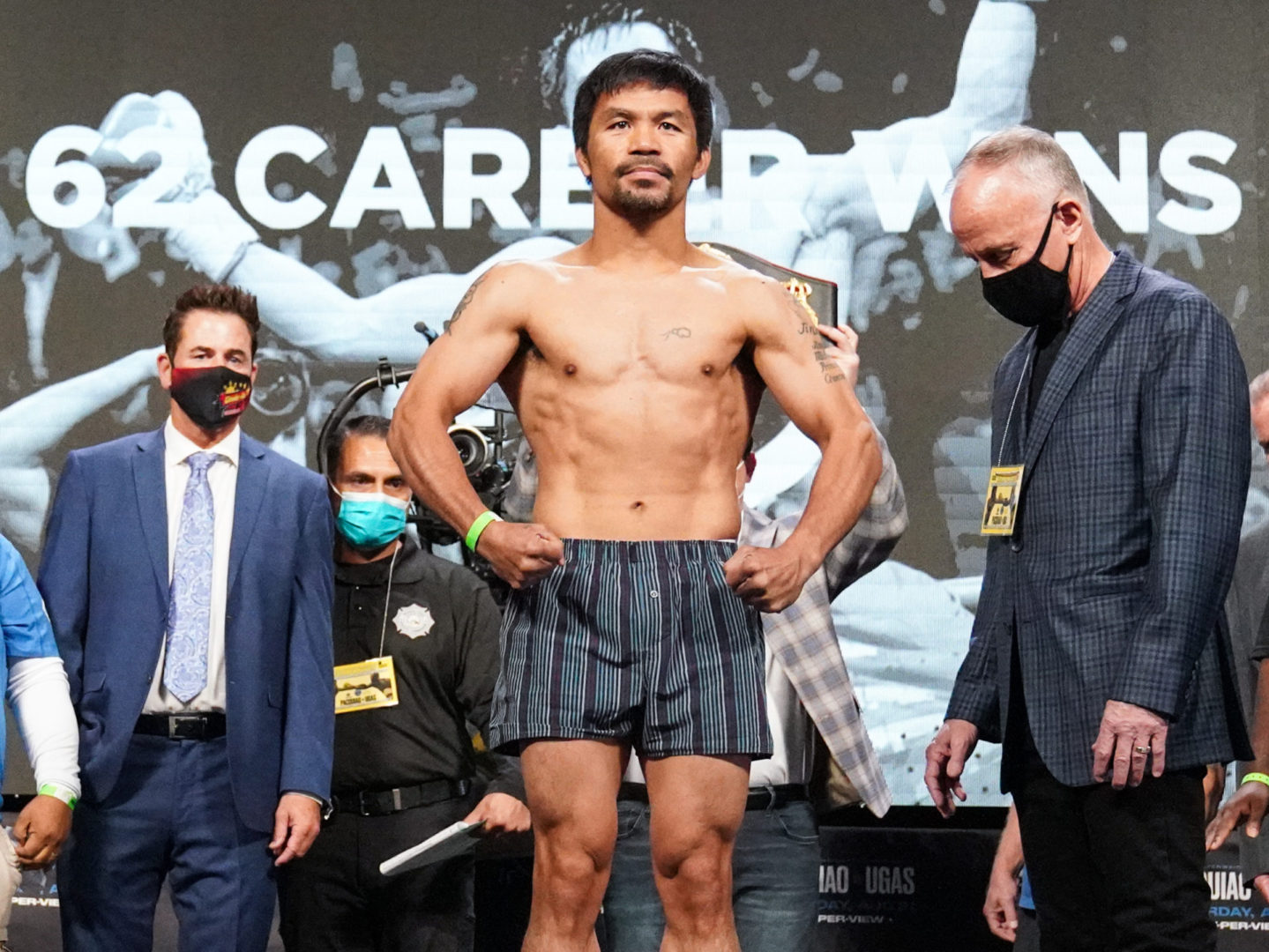
CORPUS CHRISTI, Tex. – Contrary to stereotypes about South Texas, held by the rest of the country, yes, but also other Texans, this city plays home to a superb contemporary-paint collection by local artists. Art Museum of South Texas is a jewel of sweeping modern canvases and craftily presented views of the bay on which it stands.
It is also home to work by Dorothy Hood, creator of large-scale and abstract works that challenge as much as they delight. A woman doing abstract paintings in 1960s Texas and finding enduring appreciation 150 miles from the border with Mexico: not exactly the impression of Lone Star State one gets from reading The New York Times.
A pox on the stereotypes, then!
Sing it out for South Texas, and sing it out for junior welterweights Amir Khan and Zab Judah.
Khan, a 24-year-old Englishman of Arab descent, currently holds the WBA’s version of a 140-pound title but is not his division’s king. Judah, a 33-year-old New Yorker of Brooklyn descent, has held a number of titles and routinely stretched his fans to the end of their emotional tether. The two will meet Saturday at Mandalay Bay in a match HBO will televise.
Their fight will be filled with the absence of Timothy Bradley, the junior welterweight champion last seen manhandling Devon Alexander in a deserted Pontiac Silverdome about six months ago. Bradley will still be the best 140 pounder after Khan and Judah finish a battle for mandatory-challenger status.
Bradley, it seems, has run into promotional difficulties. One didn’t have to be a cynic to suspect this the morning after his last fight. Then, Bradley strode through Southwest’s terminal at Detroit Metro Airport round 7:00 a.m. The best prizefighter in one of boxing’s best divisions not only didn’t have a first-class ticket but had to hustle to get a decent seat on a flight that rose with the sun.
Rumor is, Bradley may head to promoter Top Rank, after forgoing a chance to extend his professional relationship with Gary Shaw. Leaving a matchmaker for a promoter is a good idea. That Top Rank will know what to do with an African American from Palm Springs, Calif., though, is disputable.
What is indisputable is Bradley’s fear of Amir Khan. There is none. Whatever Bradley’s actual reason for declining a title-unification bout with Khan, fear can be dismissed. Khan’s stand-up, boxer-puncher style is custom made for Bradley. Khan is no faster than Devon Alexander and has roughly half the chin. And Bradley fearlessly gave Alexander the business till he quit in January.
Khan, though, could do Bradley quite a favor by beating Zab Judah on Saturday. Judah, in his latest incarnation at least, is more than capable of beating any of the top-5 junior welterweights. He is a wildcard and always has been.
Since his 2008 loss to Joshua Clottey – yes, the timid turtle from Cowboys Stadium – Judah has turned his life around and figured things out and adjusted his priorities and, why, every other cliché used by athletes whose talent outpaces their achievements. He’s had impressive wins against unimpressive foes and one unimpressive win against an impressive foe.
He’s also gotten a recent helping of positive press disproportionate to recent accomplishments. Most of this can be attributed to his promoter Kathy Duva, a refreshingly accessible craftsperson who treats the print media much better than many of her peers. Much of the rest of Judah’s darling treatment is attributable to the residue left by hopes appended to him years ago.
That was before Kostya Tszyu sent Judah stumbling everywhere in 2001. It was before Carlos Baldomir put him on Queer Street in 2006. It was before Floyd Mayweather solved him 90 days later. And it was before Miguel Cotto brutalized him in 2007.
Thing is, if you add Mickey Ward and Cory Spinks to the names above – Tszyu, Mayweather, Cotto and Clottey – and consider that Judah fought all of them in their primes, you come to a conclusion Judah himself has come to: He’s faced much better men than Amir Khan has. Much better men than Amir Khan is, too.
But Judah is a stereotypical front runner, one of the modern era’s greatest four-round fighters. And when the going has got tough in his career, Judah has not got going.
Khan, for his part, is considered by many the stereotype of a protected European champion. He roars like a lion when standing before overmatched opponents like Paulie Malignaggi or an old and blood-blinded Marco Antonio Barrera, but he cut a significantly different figure peddling frantically away from Marcos Maidana in December – yes, the same limited Argentine who just had a terrible time with old Erik Morales.
So what? Corpus Christi is supposed to be a warm-water, oil-rigged net for catching tourists of modest means and more-modest tastes. If you’re not standing at the end of a jetty with a fishing rod and fears of heat stroke, you’re supposed to be watching sea otters at the aquarium, marching across the USS Lexington’s 100-degree flight deck, or gobbling freezer-to-fryer seafood inside the humid belly of a concrete shark.
And yet, mere yards from that bazaar is South Texas Museum of Art. So much for stereotypes.
A prediction, then? Khan-Judah will be a fine match that either guy might win. The difference-maker, likely, will be Khan’s trainer Freddie Roach. He’s had plenty of time and case history from which to shape a strategy that will unman Judah. He may not be able to protect Khan’s chin from Judah’s quick hands, but he’s had an entire camp to teach his charge how to counter those hands.
And Judah, well, his record in big fights speaks for itself.
I’ll take Khan, SD-12.
***
A special note of thanks to local artist Miranda Gonzalez whose “Alejandro the Sea Horse” inspired the better parts of what’s above.
Bart Barry can be reached via Twitter @bartbarry









